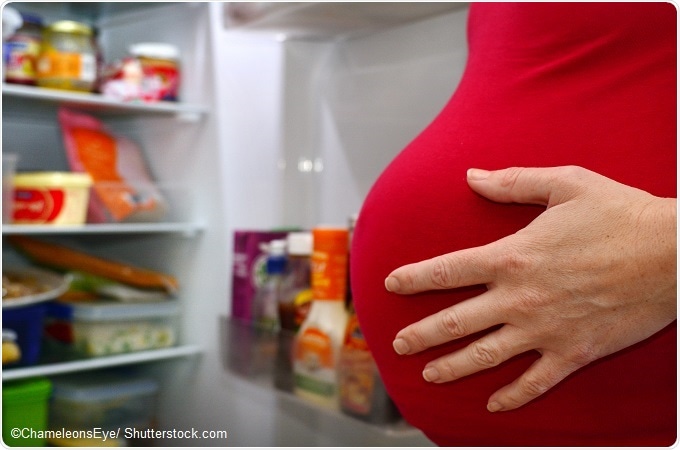A survey conducted by the National Charity Partnership (NCP), U.K suggests that most of the women who participated are not sure on the amount of food they should intake while they are pregnant.
According to the research that surveyed 2,100 U.K. women, only one-third of the expectant mothers were able to produce the correct answers to the questions asked to them. One among every three pregnant women in the study thinks that they should consume more than 300 extra calories per day.

Out of the 140 women who were pregnant during the survey, 61% had a belief that they should start eating the extra calories from the first or the second trimester.
The National Institute of Health and Care Excellence (NICE) advise the pregnant women not to take any extra calories during the first two trimesters. However, during the final trimester of pregnancy, they need 200 extra calories per day.
The NCP, which is made of Diabetes U.K., Tesco, and the British Heart Foundation commented that the information on what a carrying mother can eat is not reaching them. Along with the Royal College of Obstetricians and Gynecologists (RCOG), NCP is working to deflate the myth of “eating for two”. It also works to make the dietary requirements for pregnant women easier to understand.
“Eating for two” is a concept that women should eat for them as well as the unborn child if they are pregnant. More than one-fourth of the pregnant women included in the survey admitted that they used this idea as an excuse to have non-healthy foods every time.
Alex Davis, the head of prevention for the NCP, commented that the myth remains very unhelpful for getting the correct information out of the silent people. He added that during prenatal, natal as well as postnatal periods, eating healthily as well as taking proper portion size is important. This will increase the chance of conceiving naturally and decreases pregnancy risks and complications related to birth. Long term hindering of health issues like heart and circulatory disease as well as type 2 diabetes is also possible through this.
During pregnancy, a woman should take a balanced diet which should contain food from the five main groups: fruits and vegetables, carbohydrates, proteins, dairy products, and fats. She should take at least five-a-day of fruits and vegetables and include vegetable salads, soups, and hummus in their diet.
Carbohydrates should be just above a third of the food they take and can include bread, potatoes, rice, pasta, and oats. Proteins from pulses, fish, eggs, meat, etc., are unavoidable in the daily diet. Among the two portions of fish that should be taken per week, only one must be oily.
Wholegrain foods and nuts are to be considered as the main source of fiber. Low-fat dairy products should be preferred and should take healthy breakfast regularly to avoid unhealthy snacks in between. Foods and drinks with high-fat content as well as sugar should be avoided.
Professor Janice Rymer, vice president of education for the RCOG, said that over eating during pregnancy can be detrimental to both the mother and the baby. He said: "Women who are overweight during pregnancy are at an increased risk of having a miscarriage and developing conditions such as gestational diabetes, high blood pressure, and pre-eclampsia.”
He also added that chances of having a premature baby and a Caesarean section as well as risk of haemorrhage and developing clots which are life-threatening are high for such mothers. They might also have bigger babies, who have more possibility to become obese in the future and in turn get affected with significant health problems.
Source:
- http://www.bbc.co.uk/news/health-40698876